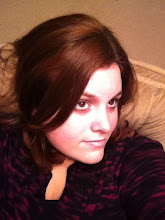I'm pleased to have a guest post here today. Mary Berbner over at The Book Swarm has kindly decided to share with everyone what she thinks makes a good sequel. I think she's on to something here personally!
What makes a good sequel
We’ve all read a book, loved it, and waited with bated breath for the sequel. And been so disappointed when that sequel fell flat.
The flip side of this is when we pick up a sequel and are dazzled. In love. Stunned—and, once again, waiting with bated breath for the next book in the series. So, what did the dazzling sequel have that the flattened second book didn’t?
Well, when I read a sequel or the second of a series, I’m looking for more of what I loved in the first book. More…but different. What drew me to the original plot should still be present in the next book and shouldn’t deviate too much, though it should be contain enough new elements, characters, and chemistry to keep my interest.
Then there are the characters. Many readers, like myself, fall in love with the characters in a novel. When characters undergo radical changes in personality in the second book, I tend to get rather frustrated. I loved with those characters in the first story, and I want them to be pretty much the same people in the next. Sure, the characters should grow and develop or, if the book’s a middle grade or young adult novel, they should mature a bit. But the essence of the characters needs to remain the same.
Some books fail because they were never meant to be sequels. Sometimes, an author pens a novel that becomes a surprise bestseller (every author’s dream). In that bestseller, she tied up all the loose ends and gave the reader a fantastic happily ever after. Then, for whatever reason, whether it’s the fans demanding more, the lure of money, or the publisher asking for additional stories, the author attempts to write a sequel. We’ve all seen it happen. The author tries too hard to recapture the magic of the first novel, forcing the characters into a plot that just doesn’t work.
However, when an author writes the first book with a sequel or series in mind, and she picks up the plot threads right where they left off, the effect can be magical. I love it when that first novel can be read as a stand-alone, with the major action and conflicts resolved, but are still some things left unfinished, room for the characters to grow, and the plot of the sequel to be the same…but different.
Mary recommends:
Beautiful Creatures--> Beautiful Darkness by Kami Garcia and Margaret Stohl
Wicked Lovely--> Ink Exchange by Melissa Marr
The Iron King--> The Iron Daughter by Julie Kagawa (with short story Winter's Passage in between)
Suite Scarlett--> Scarlett Fever by Maureen Johnson
Diary of a Wimpy Kid--> Diary of a Wimpy Kid: Roderick Rules by Jeff Kinney
Artemis Fowl--> The Arctic Incident by Eoin Colfer
Strange Angels--> Betrayals by Lili St. Crow
And, of course: the sequels to Harry Potter & The Hunger Games.







You make some good points here, Mary! So true that what I look for in a sequel is something just different enough from the first it gets boring, but not so different that it veers onto a track that doesn't work for me. Also, yes, often when authors write that first book that ties everything up so nicely...a sequel just wasn't meant for it. Why force one where there isn't any need? However, as long as it's been thought out ahead of time, and each book carries enough of its own story arc, sequels can work very well to give the reader more of the same world and characters without making it seem contrived.
ReplyDeleteVery nice opinion, Mary! I've always got problems with long series and stand alone books that get turned into 1st of series. Examples? House of Night (PC Cast & Kristin Cast) and I'm afraid Blue Bloods (Melissa de la Cruz) might be going the same way... The stories kind of get lost along the way. Exception? Harry Potter! Well planned from the beginning. Crescendo is a good (or bad!) example of a book that should've never been written. Hush, hush was a great book with a good and satisfying ending. Crescendo has just ruined an awesome story! =(
ReplyDeleteIt's funny, I'm having that problem with Torment. You'll see my review tomorrow. I like the book, but it's leaving me with some major questions. And in a way Beautiful Darkness is doing that, too. However, I loved Betrayal. I thought it was better than Immortal, because I learned more about the characters, plus there was a lot of action. I've found in a couple of the sequels I've read recently, the characters, particularly those who have love interests, get too morose and hung up on their "relationship" or "non-existent relationship." Does that make sense? It's like I want to scream: "come on, get over it!" LOL But I agree, Harry Potter and The Hunger Games are great!
ReplyDelete